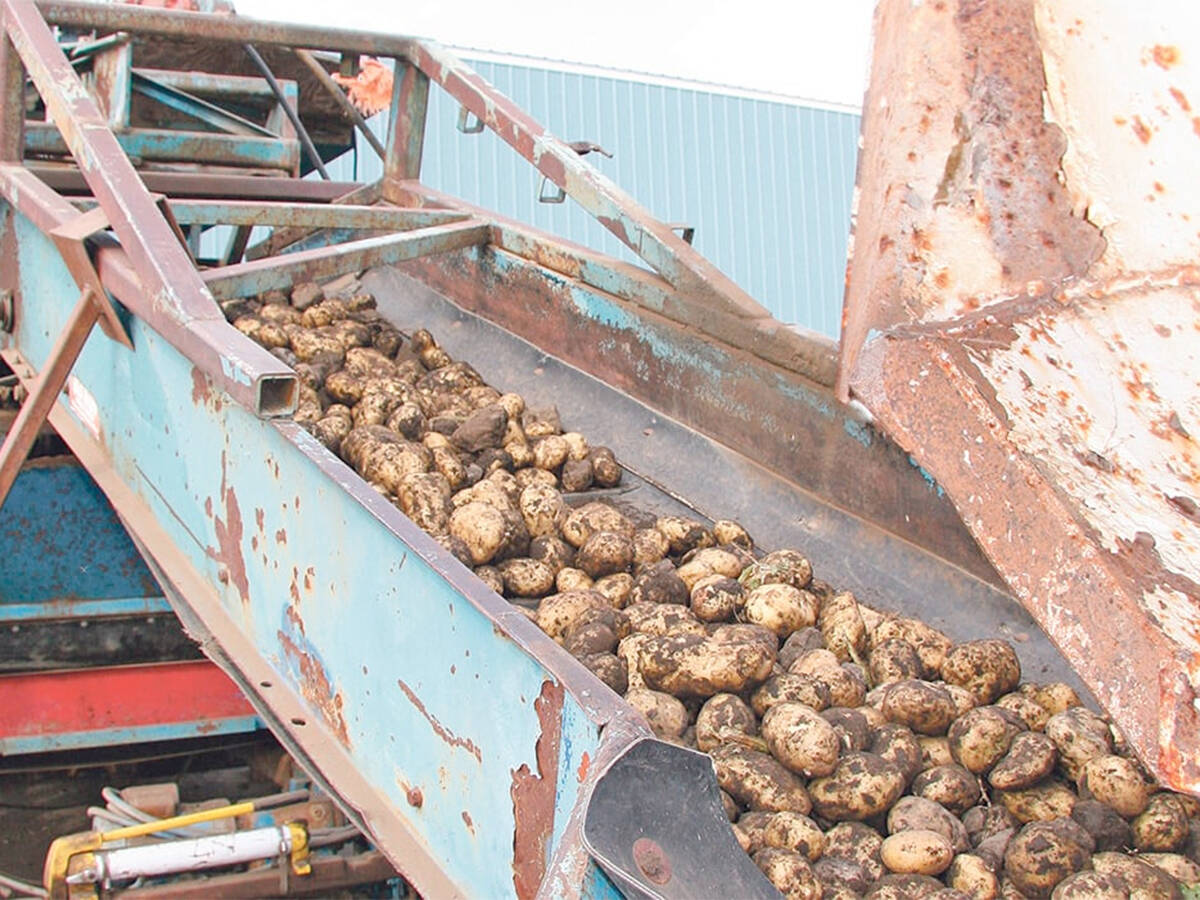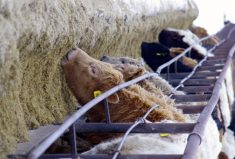Farmers who lost money because they forward sold more crop than they grew can claim that as an expense under AgriStability.
And Manitoba farmers not enrolled can still join the risk management program, but with a 20 per cent penalty on payouts.
That’s the message Stewart Wells wants every farmer to hear. The Swift Current, Sask. producer and second vice-president of the National Farmers Union (NFU) says he’s read lots of stories about farmers facing extra costs to either buy grain to fill contracts or buy out their contracts, but nothing about being able to include those costs as expenses under AgriStability.
Read Also

Potato growers beware new PVY strains
Newer strains of potato virus Y (PVY) are creating headaches for potato farms in Eastern Canada, and Manitoba farmers should pay attention
Agriculture and Agri-Food Canada (AAFC) confirmed those are eligible expenses in an email Oct. 29.
“Generally, if a producer is unable to fill a delivery contract due to disaster circumstances and is therefore required to buy back the contract, the expense associated with that buyback is allowable for AgriStability provided that the contracted amount is not more than what the producer was able to produce on their operation,” the AAFC email states. “Producers should report the amount as an allowable expense on their program forms. As with any other income or expense amount they report on their form, they may be asked for supporting documentation. An AgriStability benefit will be triggered in cases where producers experience more than a 30 per cent decline in their margin.”
Why it matters: Farmers’ losses on grain contracts are eligible expenses under AgriStability and that could affect a farmer’s payout.
In an Aug. 6 news release AAFC announced Manitoba farmers could still enrol in AgriStability.
“Manitoba is also invoking the late-participation option for producers not currently participating in AgriStability,” the release says. “Payments to late participants will be reduced by 20 per cent prior to applying any other deductions or penalties.”
AAFC’s AgriStability website says Dec. 31 is the final filing deadline with penalty.
An AgriStability agent confirmed that.
“You use the same form as for the interim application even if you’re not applying for an interim payment,” the agent said. “Send it in with your $300 (fee) and then we process it.”
While Wells wants farmers to be aware they may qualify for an AgriStability payout, he questions whether it’s good public policy since it creates a ‘moral hazard.’
“If I am a farmer and know that I can get some percentage — half or two-thirds — back if I take a real bad fall from over-contracting I’ll just do more of it next year,” he said in an interview Nov. 4. “Chances on average are I will have a decent crop and I won’t have over-contracted and I won’t be in this big trouble anyway. If it happens once every 10 or once every 15 years, the taxpayers will bail me out. It doesn’t give the companies any incentives to start offering contracts with ‘act of God’ (clauses) and it doesn’t give the farmers any incentive to look around to mitigate their risk.”
In the meantime, if the farmers who say they suffered major losses don’t take advantage of AgriStability, it raises questions about how much they were hurt, Wells said.
“If the loss was big enough they should be assessing the program.
“The second thing I want people thinking hard about is whether they should be taking taxpayers’ dollars to mitigate risk that they are creating themselves. It’s a conundrum, but the provisions are there.”
Meanwhile, the NFU wants the federal government to create regulations under the Canada Grain Act requiring all grain contracts to include an act of God clause, which would absolve farmers of their contract obligations if they have a crop failure.
“Until then, companies should be required to provide the option to carry over shortfalls in the event of crop failure, allowing farmers to deliver grain owing at the contract price the following year,” the release says.
“Since the cost of having to buy out shortfalls can be included in a producer’s AgriStability expenses, the NFU also urges the governments of Alberta and Saskatchewan to follow B.C.’s and Manitoba’s example and allow late enrolment in AgriStability. This would help thousands of farmers who have not yet enrolled in the program. While a short-term fix, it could keep more farmers in business and provide needed support to rural communities.”
Grain companies won’t support ‘act of God’ clauses, says Francois Labelle. His last position before retiring a few years ago was executive director of Manitoba Pulse & Soybean Growers. Most of his career he worked in the grain business buying and selling bulk and special crops.
“I don’t think it would be entertained at all,” he said in an interview Nov. 4. “That being said, yes, if there was an act of God there would be a cost factor included in the contracts that would be detrimental to farmers.”
When Canada’s cattle industry was decimated by BSE in the early 2000s, many people wanted more local slaughter plants, but when the crisis ended cattle went to the highest bidder.
“And that’s why most of them (proposed plants) never got built,” Labelle said. “The same thing would happen here.
“Everybody is going to chase the highest price. That’s why an act of God contract won’t work in the commodity market because I can get $5 or $10 a tonne more for my canola if I go to a buyer without that clause. I can manage that risk. And 10 years from now everybody will have forgotten about this. It won’t even take 10 years.”
Act of God clauses evolved over time, he said. They were more common years ago and sometimes used to entice farmers to grow special crops until farmers gained experience with them. Sometimes buyers and end-users shared the risk. In most years other farmers produced enough to offset a drop in production. That approach is less effective when crop failures are widespread.
“But as some of these crops evolved into more of a commodity and less of a specialty item a lot of those act of God contracts disappeared,” Labelle said.
Such clauses are also more common on higher-margin crops such as edible beans, he said. Grain company margins on high-volume crops like canola and wheat are too tight, he added.
















